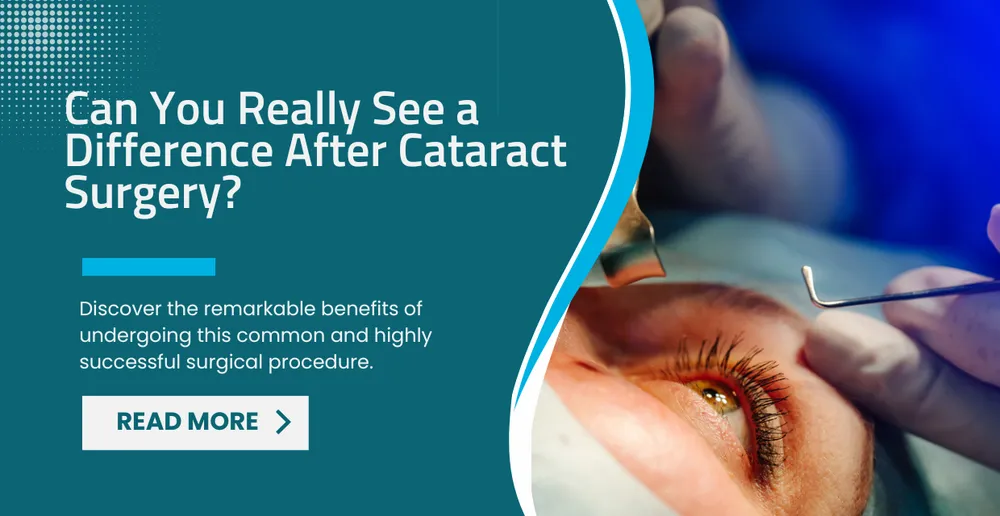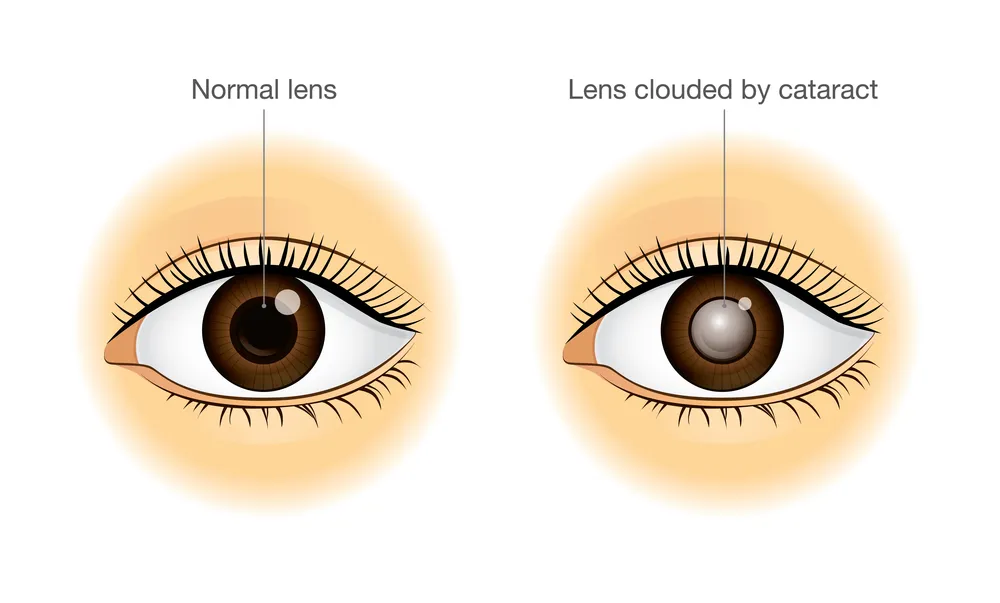The Surprising Benefits of Regular Eye Exams
When it comes to healthcare, many individuals often overlook the importance of regular eye exams. Eye health is a vital aspect of overall well-being, and routine...

Have you ever wondered what life would be like without a clear vision? For those with cataracts, the cloudiness in their eyes can make even the simplest tasks, such as driving or reading, challenging. But thanks to modern medical advancements, cataract surgery has become a standard solution for this age-related condition.
However, many still question whether undergoing this procedure is truly worth it. Can you really see a significant difference after cataract surgery? In this article, we'll explore the benefits of cataract surgery and hear from those who have experienced improved vision firsthand.

Cataracts are a common eye condition that affects many people, especially older adults. In fact, by the age of 80, more than half of Indians will have developed cataracts.
So, what are cataracts exactly? Well, imagine your eye is like a camera. There is a lens inside your eye that helps focus light onto the retina at the back of your eye. The retina then sends signals to your brain, which helps you see.
A cataract is when this lens becomes cloudy or opaque, which can make your vision blurry or dim. It's like trying to take a picture through a foggy lens – the image doesn't come out clearly.
Cataracts can also make it harder to see colors and can cause glare, which is when bright lights like car headlights or the sun can make your vision temporarily worse.
The procedure itself is very safe and typically takes less than 30 minutes. Most people are awake during the surgery and are given numbing eye drops to prevent pain. You may also be given medication to help you relax and feel more comfortable.
After the surgery, you will need to take it easy for a few days and avoid strenuous activities. You may also need to use eye drops to prevent infection and help with healing.
One of the biggest benefits of cataract surgery is improved vision. Most people notice a significant improvement in their vision within a few days or weeks after the surgery. Colors may appear brighter and more vivid, and you may be able to see more clearly overall.
Cataract surgery can also reduce the impact of cataracts on your daily life. For example, you may be able to drive more safely, read more easily, and enjoy activities like watching movies or playing sports.
Overall, cataract surgery is a safe and effective way to treat cataracts and improve vision. If you or someone you know has cataracts, talk to an eye doctor to learn more about the benefits of cataract surgery and whether it might be right for you.
Here's what you can expect:
Before the surgery: You'll need to have a pre-operative appointment with your eye doctor to make sure you're a good candidate for the surgery. They may also give you instructions on how to prepare for the surgery, such as not eating or drinking anything for a certain amount of time before the procedure.
The day of the surgery: You'll need to arrange for someone to drive you home after the surgery, as you won't be able to drive yourself. When you arrive at the surgery center, you'll be given numbing eye drops to prevent pain during the procedure.
During the surgery: The surgeon will make a small incision in your eye and use a special tool to remove the cloudy lens. They'll then replace it with a clear artificial lens. You'll be awake during the procedure, but you won't be able to see what's happening.
After the surgery: You'll need to rest for a little while after the surgery, and your eye may feel a bit sore or itchy. You may also experience some mild discomfort or sensitivity to light. Your doctor will give you instructions on how to care for your eye after the surgery, such as using eye drops to prevent infection and help with healing.
Follow-up appointments: You'll need to have follow-up appointments with your doctor to make sure your eye is healing properly and your vision is improving.
For timeframe, it usually takes about a month for your eye to fully heal after cataract surgery. During this time, you may experience some mild discomfort, sensitivity to light, and blurry vision. It's important to follow your doctor's instructions and avoid any activities that could strain or damage your eye.
Your doctor will likely prescribe eye drops to help with healing and prevent infection. Make sure to use them exactly as directed, and don't skip any doses. You may also need to use antibiotic eye drops to prevent infection.
Proper follow-up appointments with your doctor to make sure your eye is healing properly and your vision is improving is a must. They may also adjust your medication or give you additional instructions based on how you're healing.
You'll need to avoid certain activities for a few weeks after the surgery, such as swimming, heavy lifting, and strenuous exercise. Your doctor will give you specific instructions based on your individual case.
While cataract surgery is generally a safe and effective procedure, there are some potential risks and complications that you should be aware of. Here are some of the most common ones:
Infection: There is a small risk of infection after cataract surgery, which can be serious if left untreated. Your doctor will give you antibiotics to help prevent infection.
Swelling: Some swelling and discomfort in the eye is normal after cataract surgery, but in rare cases, it can become severe and require treatment.
Secondary cataracts: In some cases, a cloudy film can develop on the artificial lens used during cataract surgery. This can be treated with a laser procedure.
Choosing the right hospital for your eyes
If you or a loved one is considering cataract surgery, choosing the right hospital is important to ensure the best possible outcome. Here are some tips to help you choose a good hospital for your surgery:
Look for a hospital with experienced ophthalmologists: Ophthalmologists are eye doctors who specialize in treating eye conditions like cataracts. Look for a hospital that has a team of experienced ophthalmologists who have performed many cataract surgeries.
Check for the latest technology: Cataract surgery has come a long way in recent years, and there are many new technologies available that can make the surgery safer and more effective. Look for a hospital that has the latest technology, such as laser-assisted cataract surgery, which can be more precise and less invasive than traditional surgery.
Read reviews and ask for recommendations: Check online reviews of the hospital and ask friends and family members who have had cataract surgery for their recommendations. A hospital with a good reputation for patient care and positive outcomes is a good choice.
You can choose LifeCare Hospitals because we have expert ophthalmologists and the latest technology to ensure the best possible outcome. We also have protocols in place to minimize the potential risks associated with cataract surgery. By choosing a good hospital, you can feel confident that you're in good hands and that your vision will be restored safely and effectively.
Partager cet article